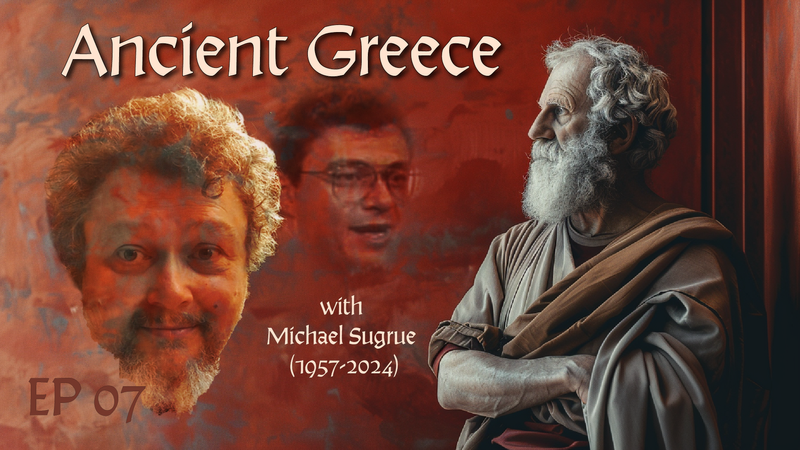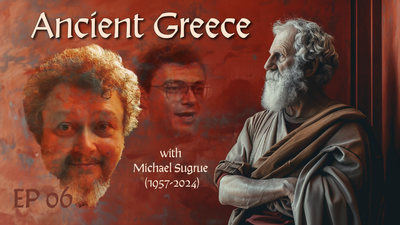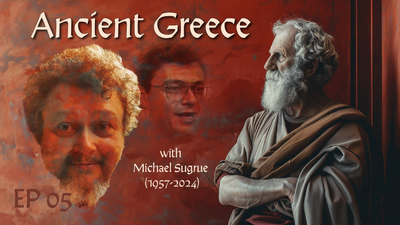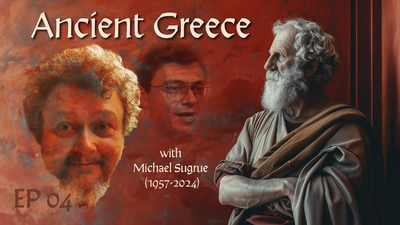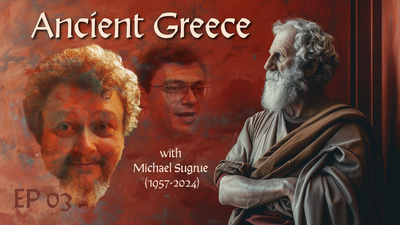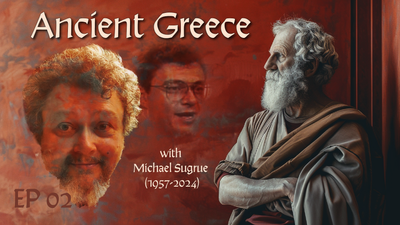Courage is a timeless virtue that transcends physical heroism. From navigating personal challenges to standing up for what’s right, courage embodies the strength to face the unknown. In Plato’s works, courage is not just about bravery in battle but a moral compass guiding us through life’s uncertainties. This week, we explore how Plato’s dialogues reveal courage as a virtue rooted in wisdom and self-awareness. By understanding courage in this light, we can learn to confront our fears with greater resilience and insight.
In today’s fast-paced world, courage is essential, whether it’s raising your voice in a meeting, standing by your principles, or taking a leap into the unknown. Think about a moment when you faced a difficult decision: Did you act out of fear, or did you choose to embrace the uncertainty with confidence? Such decisions resonate with Plato’s teachings on courage as something more than instinctual bravery—it’s an informed choice backed by wisdom.
From the Archives of Ancient Greece: Dr. Sugrue’s Exploration of Courage in Ancient Epics
Dr. Michael Sugrue’s reflections on courage dive into the world of Greek epics, where legendary heroes like Achilles and Odysseus embodied courage in its many forms. In these stories, Sugrue explains, courage often wavered between bold action and wise restraint. Achilles’ choice to re-enter the battle, fully aware of his fate, exemplifies the ancient belief that courage involves confronting mortality with dignity. But Sugrue goes deeper, showing that Plato saw courage as more than just battlefield valor.
Through the lens of these epics, Sugrue reveals that courage often meant holding fast to one’s values amidst adversity. Consider the courage it takes for Odysseus to navigate both external and internal battles on his journey home—a testament to the broader, philosophical concept of facing the unknown with both heart and mind. This understanding of courage is echoed in Plato’s dialogues, where Socrates challenges young Athenians to cultivate inner courage as a guiding virtue for living well.
Insights from the Dialogues: Courage Defined in Laches
Plato’s Laches offers an illuminating conversation on the nature of courage. Socrates questions General Laches and others to define what true courage is, moving beyond the conventional notion of mere fearlessness in battle. When Laches initially suggests that courage is standing firm in combat, Socrates skillfully nudges the dialogue towards a more nuanced definition, hinting that genuine courage must involve knowledge.
Socrates’ probing questions force the participants to reflect: Is courage simply enduring hardship, or does it involve understanding what to fear and what not to fear? This exploration challenges readers to rethink courage not as blind boldness, but as a deliberate and thoughtful stance toward life’s challenges. Much like the decisions we face today—whether to speak out, to take a risk, or to act with integrity—Plato encourages us to ground our courage in informed conviction.
Chance and Fate: Strategies in Knucklebones—Bravery or Luck?
In ancient Greece, games like knucklebones were more than simple diversions—they reflected the deeper currents of fate, chance, and human agency. In playing knucklebones, Greeks confronted the interplay of bravery and fortune, where strategy met unpredictability. Just as in life, these games required not only skill but the courage to face the unknown outcomes of a roll.
Explore the Mystical World of Astraguli: Ancient Games of Chance with Cultural Significance.
The Greeks believed that games mirrored life’s uncertainties, where preparation and courage met fate head-on. Imagine a soldier contemplating battle or a statesman deciding on a policy—both faced decisions shaped by forces beyond their control. These games symbolized life’s unpredictability, reminding players that courage is not just about acting boldly, but also accepting whatever fate has in store.
Virtues Revisited: Practical Lessons for Today
This week’s featured virtue is courage. It’s easy to romanticize courage, picturing grand acts of heroism. But in reality, courage takes many forms: resisting peer pressure, owning up to mistakes, or making difficult choices with incomplete information. Each requires confronting fear, uncertainty, or social expectations—courage that Plato would recognize as the root of wisdom.
Today, courage can mean standing up for ethical principles in the workplace, pushing back against injustice, or simply facing personal setbacks without losing hope. Think about a recent decision where courage played a role in your life. What informed your choice? Plato’s dialogues remind us that courage without wisdom can be reckless, but courage with insight can be transformative.
Engage with Us: Reader’s Corner
We encourage you to reflect on courage in your own life. Have you faced a situation where uncertainty demanded bravery? Share your stories with us on planksip.org, where we explore ancient wisdom together. Imagine courage not as an isolated act but as an ongoing journey, one that shapes our lives and the world around us. Select reflections will be featured in our upcoming newsletters—join us in this dialogue, and let’s keep ancient wisdom alive.
Closing Reflection: Socrates’ Enduring Legacy
Socrates’ commitment to questioning the essence of virtues like courage offers a timeless guide for navigating the unknown. His unwavering search for truth, even in the face of death, invites us to approach our challenges with the same blend of courage, humility, and wisdom. As we journey through life’s uncertainties, Socrates’ example challenges us to be brave in the pursuit of understanding, facing each new question with an open mind and a courageous heart.

Plato Re-Imagined
This course offers 32 comprehensive lectures exploring most of Plato's dialogues. These lectures guide students toward a consilient understanding of the divine—a concept that harmonizes knowledge across disciplines and resonates with secular and religious leaders. As a bonus, Lecture #33 focuses on consilience, demonstrating how different fields of knowledge can converge to form a unified understanding.

